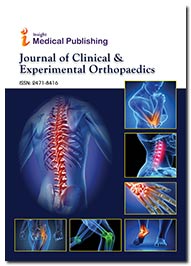Abstract
The Impact of Gastric Bypass Surgery Compared to Total Knee Arthroplasty on Knee Symptoms
Background: Marked associations between obesity and the development of knee symptoms have been well established. The prevalence of obesity in Western populations has continued to rise over the past decades, and this has been associated with a significant rise in the number of patients with debilitating knee symptoms who are obese. While these patients may be referred to orthopaedic surgeons for assessment and consideration of treatment options, they may lack intra-articular pathology amenable to orthopaedic surgical intervention such as a Total Knee Arthroplasty (TKA). Laparoscopic roux-en-y gastric bypass (LRYGB) surgery is one of the more effective ways to induce and maintain weight loss, and while bariatric surgery has been reported to provide significant reductions in knee symptoms no studies have compared the magnitude of change is symptoms compared to TKA. The purpose of this study was to assess the impact of LRYGB on knee-specific patient reported outcomes, and to compare these findings to a matched cohort of patients who underwent TKA for OA.
Methods and findings: Twenty patients who underwent bariatric surgery were matched on a one-to-two basis to forty patients who had previously undergone unilateral primary TKA at a single institution. WOMAC scores were collected at baseline and at 6 and 12 month follow ups. The mean percentage improvement in knee-specific pain scores was similar between groups at both 6 month (49.9% vs. 58.3%; p=0.438) and 1 year (62.7% vs. 68.2%; p=0.576) follow-up intervals. Furthermore, patients who underwent LRYGB had significantly greater mean percent improvement in knee-specific WOMAC function scores at 6 month followup (66.3% vs. 46.8%; p=0.048), and a similar though marginally non-significant improvement at 12 month followup (68.4% vs. 51.6%; p=0.094).
Conclusion: The relative improvement in symptoms of a group of LRYBG patients was similar to that of a matched group of patients who underwent TKA for end-stage OA. While further work is needed to better delineate the contribution of elevated BMI to knee symptoms, as well as to ascertain whether these findings are maintained at longer-term follow-up, surgeons should consider bariatric consultation for obese patients with knee symptoms lacking either focal pathology amenable to orthopaedic management or degenerative changes sufficiently advanced to warrant joint arthroplasty.
Author(s):
Hafiz Kassam*, Allan Okrainec, Timothy Jackson, Michael G Zyweil, Anthony V Perruccio, Todd Penner, David Urbach and Rajiv Gandhi
Abstract | Full-Text | PDF
Share this

Google scholar citation report
Citations : 161
Journal of Clinical & Experimental Orthopaedics received 161 citations as per google scholar report
Journal of Clinical & Experimental Orthopaedics peer review process verified at publons
Abstracted/Indexed in
- Google Scholar
- China National Knowledge Infrastructure (CNKI)
- Directory of Research Journal Indexing (DRJI)
- WorldCat
- Publons
- Geneva Foundation for Medical Education and Research
- Secret Search Engine Labs
Open Access Journals
- Aquaculture & Veterinary Science
- Chemistry & Chemical Sciences
- Clinical Sciences
- Engineering
- General Science
- Genetics & Molecular Biology
- Health Care & Nursing
- Immunology & Microbiology
- Materials Science
- Mathematics & Physics
- Medical Sciences
- Neurology & Psychiatry
- Oncology & Cancer Science
- Pharmaceutical Sciences


